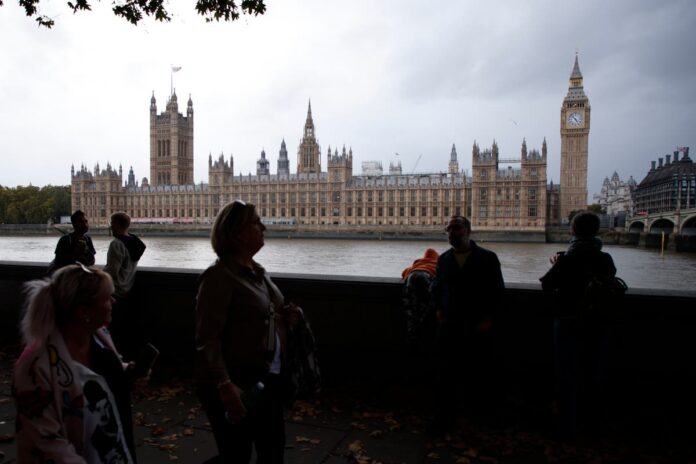Given the political turmoil of the last few months (although we can also go back further than that), it is of little surprise that the connection between the public and parliament appears thinner than ever. New polling conducted by YouGov for the IPPR think tank shows that 66 per cent of those asked believe that politicians are just ‘out for themselves’. In May 2021, 57 per cent felt the same way. This nine-percentage-point drop took place over the course of 18 months, with the think tank pointing out that the last comparable drop took seven years, and the one before that took 42 years. All as a way of showing that trust in our politics is in ‘freefall’.There are other stats from the poll of 1,700 adults that will make for grim reading within Westminster. Only 4 per cent of the public believe politicians are doing their best for the country, while 19 per cent think that politicians prioritise their party over all else. These are not just the views of one part of the political spectrum – the numbers are pretty consistent however you slice them. Sixty-seven per cent of those who voted Remain in the EU referendum, 68 per cent of Leave voters, 64 per cent of Conservative voters and 69 per cent of Labour voters believe that politicians are merely out for themselves. The same is true of voters in London (60 per cent), the North (69 per cent) and Scotland (70 per cent). Or whether respondents define themselves as middle class or working class, with 65 and 66 per cent respectively holding the same view.So what does this mean in practice? A lack of trust can breed apathy, which can mean lower voter turnout – especially among groups that are already underrepresented. Given the state British politics has been in for some time, more polarisation is probably the last thing we need, but that could be another consequence. This distrust also results in less-effective government, as a definite consensus is harder to find, which can lead to action that is either too tentative or very much the other way. While the personalities in UK politics have certainly played a part in the number of U-turns successive governments have had to take, it could be argued that these reversals are also a sign of politicians struggling to discern what the electorate wants.
Politics Explained: Trust in politicians has fallen sharply – can it be won back?
Sourceindependent.co.uk
RELATED ARTICLES


